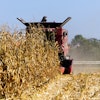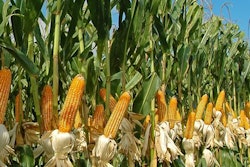
EPA Committed to E15 For Summer Driving Season
The U.S. Environmental Protection Agency, EPA, said it would complete a rule to boost sales of higher-ethanol blends of gasoline, E15, by the summer driving season.
The EPA currently bans E15 during summer because of non-scientific based concerns that the mixtures can contribute to smog on hot days. The E15 gasoline contains 15 percent ethanol, versus the 10 percent found in most U.S. gasoline.
President Trump had made changing the EPA rule a priority regarding year round sales of E15 a priority back in November 2018.
The proposal is expected to be coupled with a host of structural reforms to the credit-trading or RIN, renewable identification numbers, market that helps support the renewable fuel policy. The RINs are used by producers to help balance and track production and are tradeable in the secondary market.
How Does This Impact the U.S. Farmer? The move to year round sales of E15 could help support local corn basis in selected areas and should be positive to corn futures as well. Increasing nationwide demand for E15 should help draw on existing stock levels and could reduce the risk of the ethanol producer reducing supplies, or weekly production runs. Hard to determine the new demand for corn but the change in policy could add 50-75 MBU of demand.
US/Chinese Trade Talks: Trump Willing To Not Increase Tariffs
All eyes are on the U.S. and China this week as a high-level U.S. delegation led by Trade Representative Robert Lighthizer and Treasury Secretary Steven Mnuchin will hold two-day talks, starting Thursday, with Chinese Vice Premier Liu He and his entourage.
Despite the positive development of high-level of Trump administration officials going to Beijing, there are a plethora of structural details that must be addressed. Hope is that a workable framework by the two countries will be developed.
Protection of how U.S. intellectual property is treated by the Chinese remains at the top of the list.
No new information regarding treatment of U.S. agricultural products.
Trump made some comments that he would be willing to overlook the March 2 deadline if the two countries were close to a deal.
What Does This Mean for U.S. Farmers? Another day and another round of trade talks. With no news about agriculture policy, the soy and corn markets and other financially traded markets rallied Tuesday on the prospect that the additional tariffs that Trump has set to implement on March, 2 will be “overlooked” as progress is being made. Still no specifics for U.S. agriculture products.
The risk of trading futures, hedging, and speculating can be substantial. FBN BR LLC (NFA ID: 0508695)










